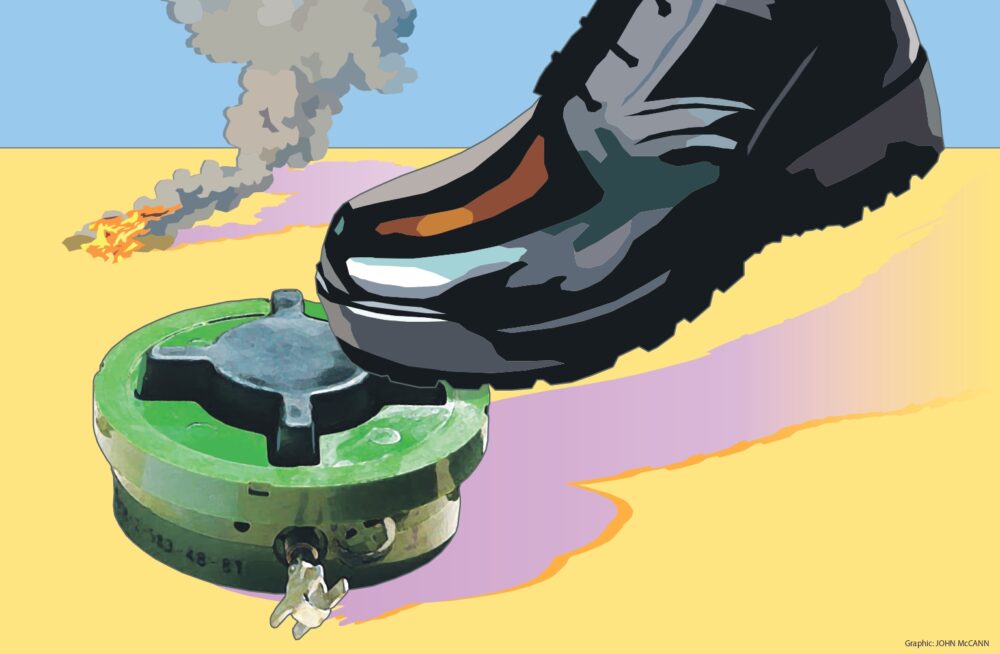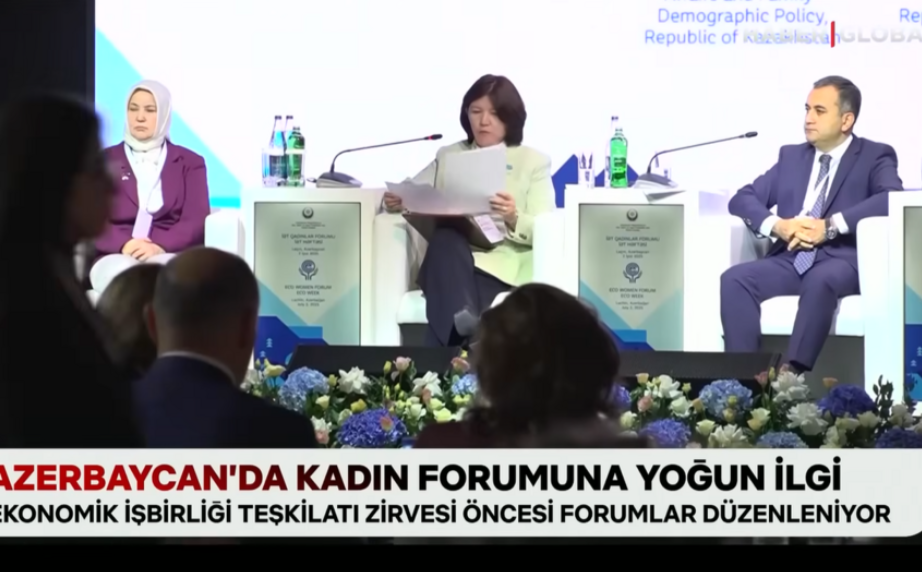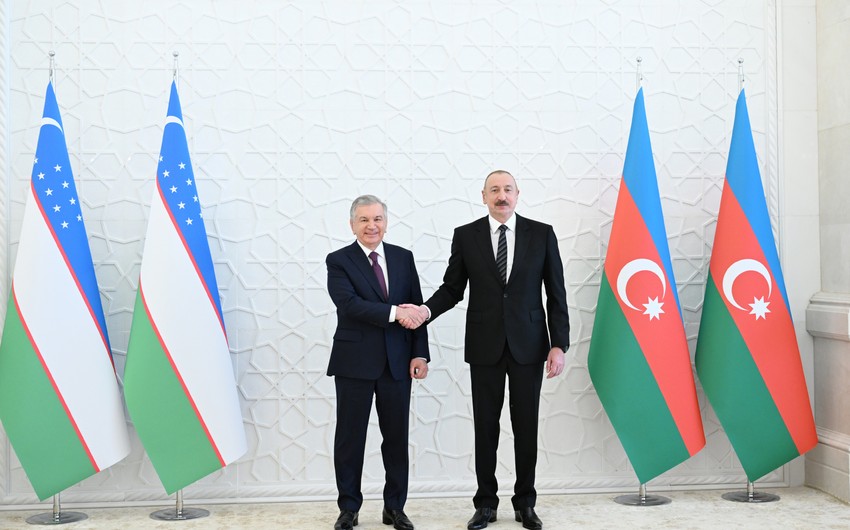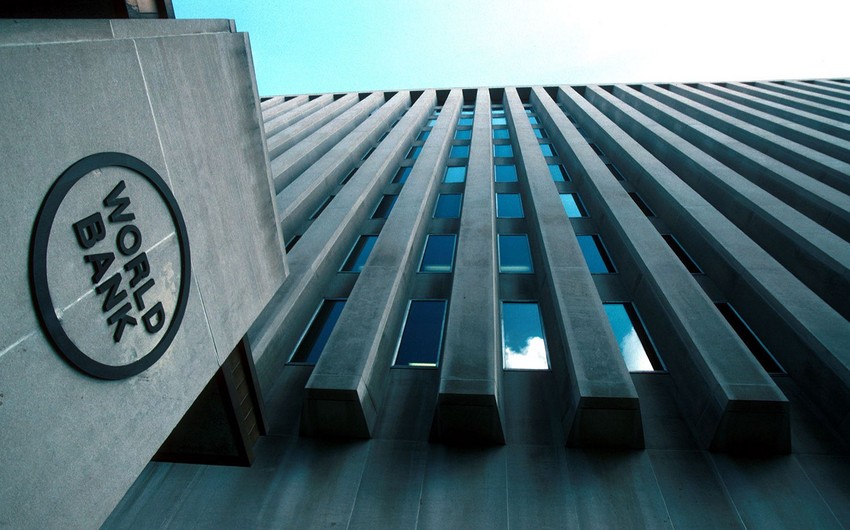At least 1 983 people were killed and 3 663 injured in 53 countries, according to the 2024 report by the Landmine and Cluster Munition Monitor Group. Civilians made up 84% of the victims, with children accounting for 37%.
Efforts by a number of organisations continue to assist countries around the world in mine clearance.
Princess Diana of Wales was perhaps one of the most popular people who spearheaded and highlighted the urgency of mine clearance. The image of her wearing a protective visor and flak jacket, walking through a minefield in Huambo, Angola, made international headlines.
Landmines continue to harm the ability of people to reach their full potential, particularly in the region of Karabakh in Azerbaijan.
Karabakh is heavily contaminated with landmines and unexploded ordnances.
More than 340 Azerbaijani citizens have either been killed or injured in varying degrees due to landmines since the Second Nagorno-Karabakh War.
It’s estimated that 11 667 square kilometres of territory in the Karabakh Economic Region is laced with landmines and other explosive remnants of war.
According to estimates by experts, it will take decades to clear the region of the landmines and the unexploded ordnances.
Karabakh covers the southeastern stretch of the Lesser Caucasus mountain range. The region was occupied and governed by Armenia in the First Nagorno-Karabakh War in 1994. The Second Nagorno-Karabakh War, also known as the 44-day war, took place from 27 September to 10 November 2020.
Azerbaijan reclaimed the Karabakh region except for a rump state connected through a narrow Russian-controlled corridor with Armenia.
On 19 September 2023, the Azerbaijani armed forces took over this area, including the ancient city of Khankendi.
The takeover of Khankendi was particularly important for Azerbaijan because of its historical significance. The city was established by the khan (or ruler) of Karabakh in 18th century, and was thus called Khankendi or ruler’s own.
The University of Karabakh is located in Khankendi. Hundreds of students from various parts of Azerbaijan are enrolled there. It is gradually becoming a vibrant student city with ambitious plans for growth and economic activity.
Khankendi also a campaign to attract new residents and businesses from other parts of the country, including those who left their homes and business during wars and conflicts in Karabakh over the years.
Thousands of Azerbaijanis who were forcibly removed from their homes in Karabakh during the 1990s and after the First Nagorno-Karabakh War live in the city.
The government of Azerbaijan has also communicated willingness to help resettle Armenians who left their homes after the war. According to the Azerbaijan’s foreign ministry, the country is “committed to upholding the human rights of the Armenian residents of Karabakh on an equal basis with other citizens of Azerbaijan”.
The government has kept the houses and business premises of Armenians, especially in Khankendi, intact and uninhabited, hoping that Armenians and others who left will one day return.
Notwithstanding political successes and infrastructural developments, the region of Karabakh is still struggling to meet the goals of its socio-economic projects.
This is due largely to the dangers presented by landmines and other unexploded ordnances.
After the end of the Second Nagorno-Karabakh War in 2020 landmine maps were transferred to Azerbaijan.
In June 2021, Armenia handed to the Azerbaijan government a map detailing the location of landmines in Agdam, a region relinquished by ethnic Armenian forces as a part of a deal to end their short war of 2020.
But Azerbaijan regarded those maps as inaccurate.
In 2024, Armenia presented an additional eight maps on minefields in Karabakh. But, according to the Azerbaijan National Mine Action Agency (ANAMA), “the information in those maps was “inaccurate, unreliable and incomplete”.
The agency said the carnage caused by landmines continues despite Armenia’s repeated claims of having provided accurate and complete minefield maps.
Anama is responsible for the clearance of mines, unexploded ordnance and other explosive residues (except for chemical weapons) found in the territories freed from occupation.
It is also responsible for other areas affected by war and military operations, and its activities include temporary storage, transportation and neutralisation of the weapons, as well as the planning, coordination and management of other activities.
Last year, ANAMA cleared 62 023 hectares of landmines, gathered 59 163 pieces of unexploded ordinances, 4 286 anti-personnel mines and 2 372 anti-tank mines.
The constant danger presented by the landmines and other ordnances continue to impede the progress in Karabakh.
Armenia is not a signatory to the Convention of the Prohibition of the Use, Stockpiling, Production and Transfer of Anti-Personnel Mines and on Their Destruction.
The convention is aimed at eliminating anti-personnel landmines. It cannot therefore be held accountable for careless planting of landmines in civilian areas, including for not keeping accurate maps on where landmines were planted in Karabakh.
But Armenia is bound by prohibitions on indiscriminate weapons under international humanitarian law in the use of landmines. The indiscriminate planting of landmines and falsifying maps of where these mines are planted violates the international humanitarian law.
Notwithstanding, Karabakh is on the upwards when it comes to the reconstruction and rehabilitation of infrastructure, including of roads, utilities and public services, which are essential for facilitating economic activities, enhancing connectivity and improving residents’ quality of life.
In Agdam, for example, a secondary school, a kindergarten, a residential complex and a hotel are being built. The town is also constructing a housing complex. The first phase of the complex comprising six six-storey residential buildings totalling 201 apartments has been completed.
The process of removing landmines from Karabakh will take a long time.
According to the government of Azerbaijan, clearing mines that have been planted by Armenia on occupied Azerbaijani territories will take nearly 30 years and cost $25 billion.
In the meantime, Azerbaijanis are likely to continue to be killed and injured.
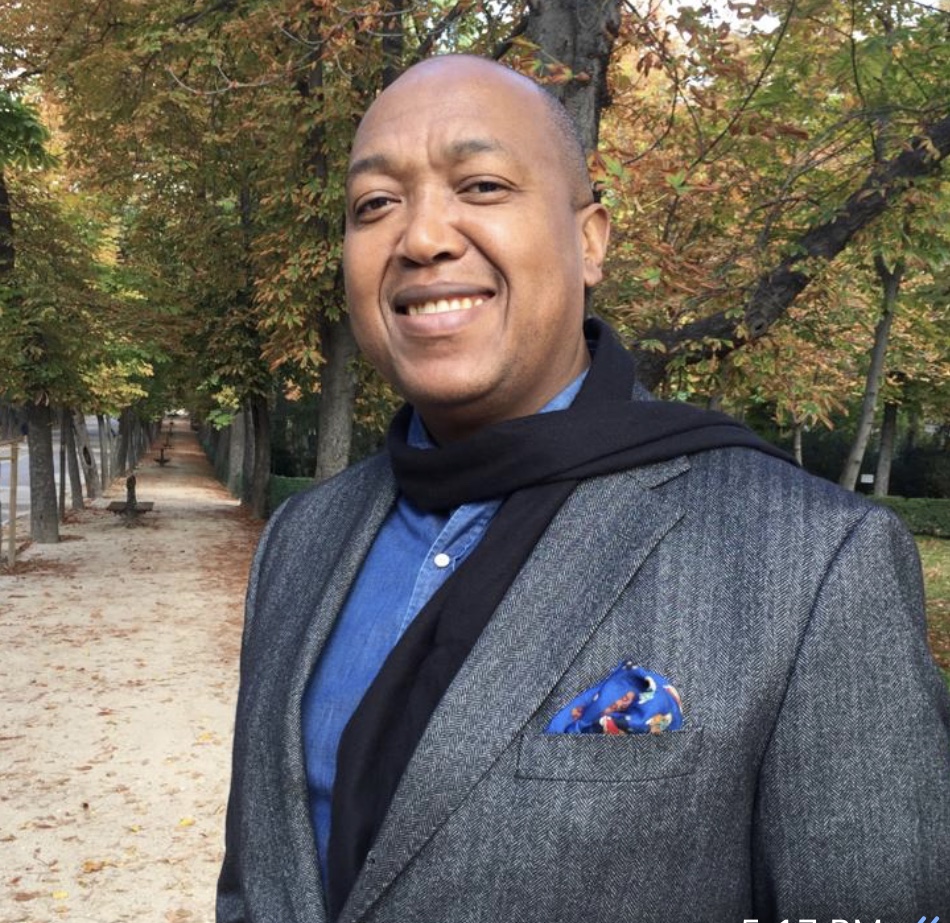
Author: Thembisa Fakude

